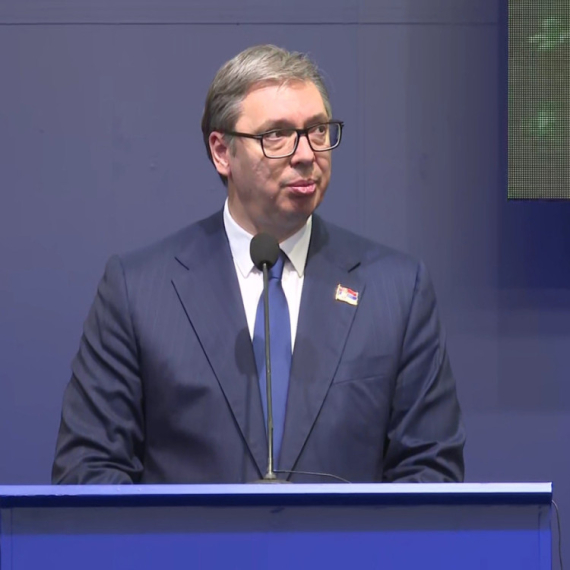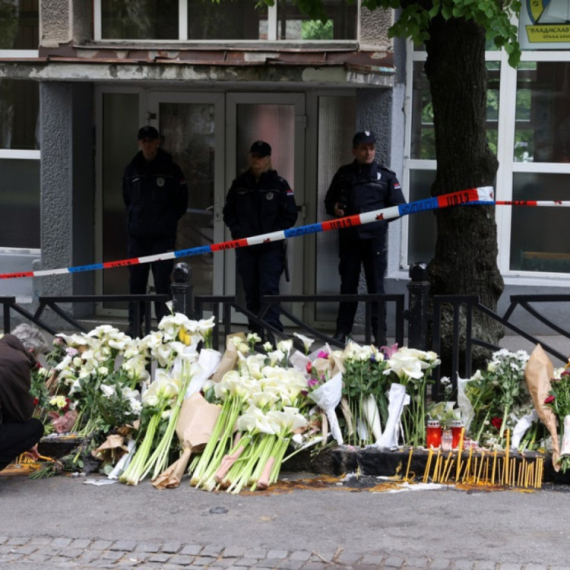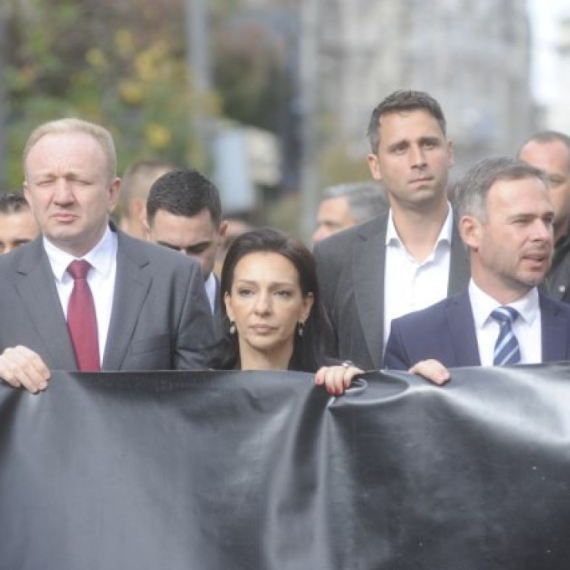Nepal to abolish monarchy as rebels rejoin government
Nepal is to abolish its monarchy after rebels Sunday agreed to rejoin the government.
Monday, 24.12.2007.
11:09

Nepal is to abolish its monarchy after rebels Sunday agreed to rejoin the government. It is hoped that the deal will end the country's long-running peace deadlock, a senior minister said. Nepal to abolish monarchy as rebels rejoin government The ultra-leftists, who ended a decade-long insurgency late last year, stormed out of an interim government in September, complaining they were not being given equal representation in the peace process. The new deal will see the government agree to declare the country a republic -- a key Maoist demand. "The Maoists have agreed to rejoin the government as we (the political parties) reached a 23-point agreement on major political issues today," Finance Minister Ram Sharan Mahat, who attended the meeting with former rebels, told AFP. "The country will be declared a federal democratic republic in an interim constitution but we will implement the decision only after the constituent assembly elections," said Mahat, who belongs to the Nepali Congress, the largest party in the current government. Earlier this month, the parties agreed to hold constituent assembly polls by mid-April next year, which has been postponed twice due to Maoist demands that the electoral system be reformed. The former rebels had called for an immediate abolition of the monarchy as one of its key demands to ensure free and fair elections that would shape the country's political future. "We have also agreed that if the king conspires to disrupt the elections the two-third majority of interim parliament will implement the decision of a republic before polls are held," Mahat said. The minister said the former rebels have also agreed to some electoral changes, giving up their earlier demands for a full proportional election system. "We will now have a 601-member assembly in which 335 will be elected from a proportional election system, 240 from first-past-the polls and 26 will be nominated by the parties," Mahat said. The Maoists formally ended their decade-long insurgency that claimed over 13,000 lives after striking a landmark peace deal in November last year. The former communist rebels came out of the jungle and joined with the political parties after weeks of massive pro-democracy protests forced King Gyanendra to end his 14 months of direct rule in April 2006.
Nepal to abolish monarchy as rebels rejoin government
The ultra-leftists, who ended a decade-long insurgency late last year, stormed out of an interim government in September, complaining they were not being given equal representation in the peace process.The new deal will see the government agree to declare the country a republic -- a key Maoist demand.
"The Maoists have agreed to rejoin the government as we (the political parties) reached a 23-point agreement on major political issues today," Finance Minister Ram Sharan Mahat, who attended the meeting with former rebels, told AFP.
"The country will be declared a federal democratic republic in an interim constitution but we will implement the decision only after the constituent assembly elections," said Mahat, who belongs to the Nepali Congress, the largest party in the current government.
Earlier this month, the parties agreed to hold constituent assembly polls by mid-April next year, which has been postponed twice due to Maoist demands that the electoral system be reformed.
The former rebels had called for an immediate abolition of the monarchy as one of its key demands to ensure free and fair elections that would shape the country's political future.
"We have also agreed that if the king conspires to disrupt the elections the two-third majority of interim parliament will implement the decision of a republic before polls are held," Mahat said.
The minister said the former rebels have also agreed to some electoral changes, giving up their earlier demands for a full proportional election system.
"We will now have a 601-member assembly in which 335 will be elected from a proportional election system, 240 from first-past-the polls and 26 will be nominated by the parties," Mahat said.
The Maoists formally ended their decade-long insurgency that claimed over 13,000 lives after striking a landmark peace deal in November last year.
The former communist rebels came out of the jungle and joined with the political parties after weeks of massive pro-democracy protests forced King Gyanendra to end his 14 months of direct rule in April 2006.



























































Komentari 1
Pogledaj komentare